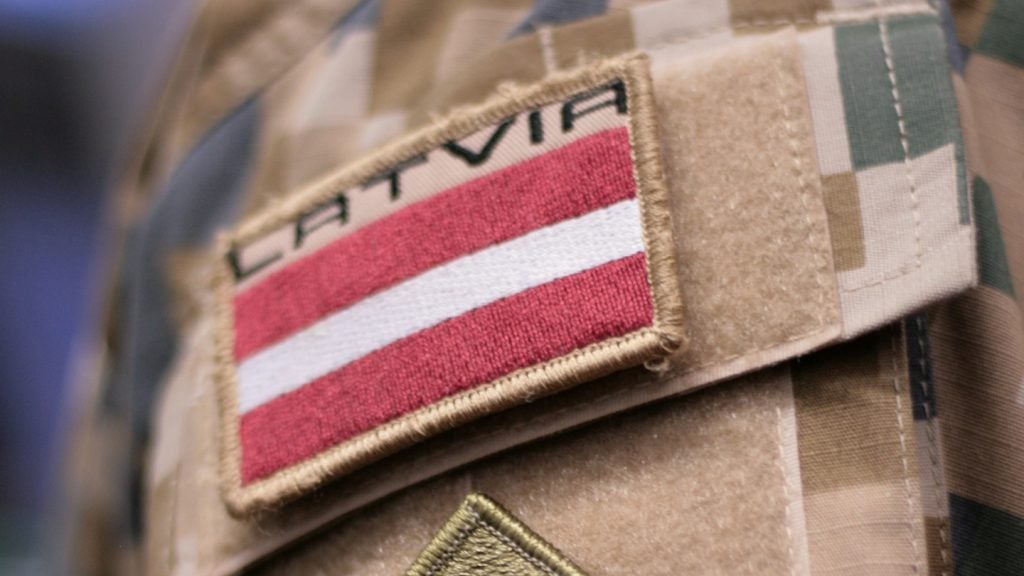The future of the defence industry will be shaped by a range of disruptive themes, with artificial intelligence (AI) being one of the themes that will have a significant impact on defence companies. A detailed analysis of the theme, insights into the leading companies, and their thematic and valuation scorecards are included in GlobalData’s thematic research report,Artificial Intelligence (AI) in Aerospace and Defense – Thematic Research. Buy the report here.
AI technologies are rapidly evolving. The US and China are developing their AI capabilities for a broad range of military functions that will have a significant impact on the defence sector. Similarly, defence primes are advancing their AI capabilities organically and through acquisitions. Perhaps the most publicised and controversial AI application in defence concerns autonomous vehicles and weapon systems. However, AI is also being applied in various other functions such as intelligence, surveillance, reconnaissance (ISR), logistics, cyber operations, command and control, and drone swarms. AI technology could make military operations more efficient, accurate and powerful, while also offering long-term cost-cutting potential.
From a humanitarian standpoint, the ethical issues of AI in defence robots, are numerous. From a cultural perspective, in the US, there seems to be a divide between commercial companies and the US Department of Defense (DoD). The complexity of the defence acquisition process creates a deterrent for some commercial companies to partner with the DoD. These issues raise serious questions about the implications of AI within the military and the extent to which governments should regulate their development or restrain their employment. Despite these concerns, as with any military technology, the prospect of falling behind may put those who do not recognise the potential that AI offers at a clear disadvantage. Both the Chinese and Russian governments have detailed their plans to dominate AI. AI’s rapid progress makes it a powerful tool from economic, political, and military standpoints. As military competition is ultimately a matter of scale, medium and smaller powers will struggle to keep up with the US and China. More targeted research can provide a genuine competitive advantage to countries with fewer resources but specific needs, removing the obligation to innovate across every segment.
However, not all companies are equal when it comes to their capabilities and investments in the key themes that matter most to their industry. Understanding how companies are positioned and ranked in the most important themes can be a key leading indicator of their future earnings potential and relative competitive position.
See Also:
According to GlobalData’s thematic research report, Artificial Intelligence (AI) in Aerospace and Defense, leading adopters include: BAE Systems, Boeing, Elbit Systems, Leidos, Lockheed Martin, and Raytheon.
Insights from top ranked companies
BAE Systems
BAE Systems has been awarded several contracts through the US Defense Advanced Research Projects Agency (DARPA) to develop initiatives for both the government and military. Such projects include machine learning analytics as a service. The aim is to deliver continuous, worldwide situation awareness, using open source data and satellite imagery, to aid with a wide range of challenges such as anomaly detection and prediction. In a contract worth up to $4.7m, BAE Systems is developing its machine learning software to incorporate it into systems used in electronic warfare. Its Controllable Hardware Integration for Machine-Learning Enabled Real-time Adaptivity (CHIMERA) solution seeks to make sense of intercepted radio frequency (RF) signals from adversaries in increasingly crowded electromagnetic spectrum environments.
Raytheon Technologies
Raytheon Technologies’ Raytheon Intelligence & Space business unit is using AI to improve the ISR capabilities of the US and allied armed forces. Raytheon has developed its multi-spectral targeting system, a turreted electro-optical and infrared sensor for use in maritime and land ISR missions. By collating masses of data, the system seeks to provide actionable insight and intelligence, generating accurate targeting information in high-risk environments. In November 2020, Raytheon’s intelligence and space business also announced that it is partnering with C3.ai in an attempt to speed up AI adoption across the US military. The partnership will combine Raytheon’s expertise in the defence and aerospace sector with C3.ai’s AI applications.
To further understand the key themes and technologies disrupting the defence industry, access GlobalData’s latest thematic research report on Artificial Intelligence (AI) in Aerospace and Defense.
- Safran
- Elbit Systems
- Israel Aerospace Industries
- Mitsubishi
- Thales
- Rolls-Royce
- ThyssenKrupp
- QinetiQ
- Hanwha
- Rafael Advanced Defense Systems
- Almaz-Antey
- Honeywell
- GE
- Airbus
- Perspecta
- Aerojet Rocketdyne
- Saab
- Vectrus
- Hyundai Motor
- TransDigm
- Oshkosh
- Meggitt
- Leonardo
- Rheinmetall
- LIG Nex1
- CSSC
- CETC
- CASIC
- General Dynamics
- CAE
Premium Insights
From

The gold standard of business intelligence.
Blending expert knowledge with cutting-edge technology, GlobalData’s unrivalled proprietary data will enable you to decode what’s happening in your market. You can make better informed decisions and gain a future-proof advantage over your competitors.







